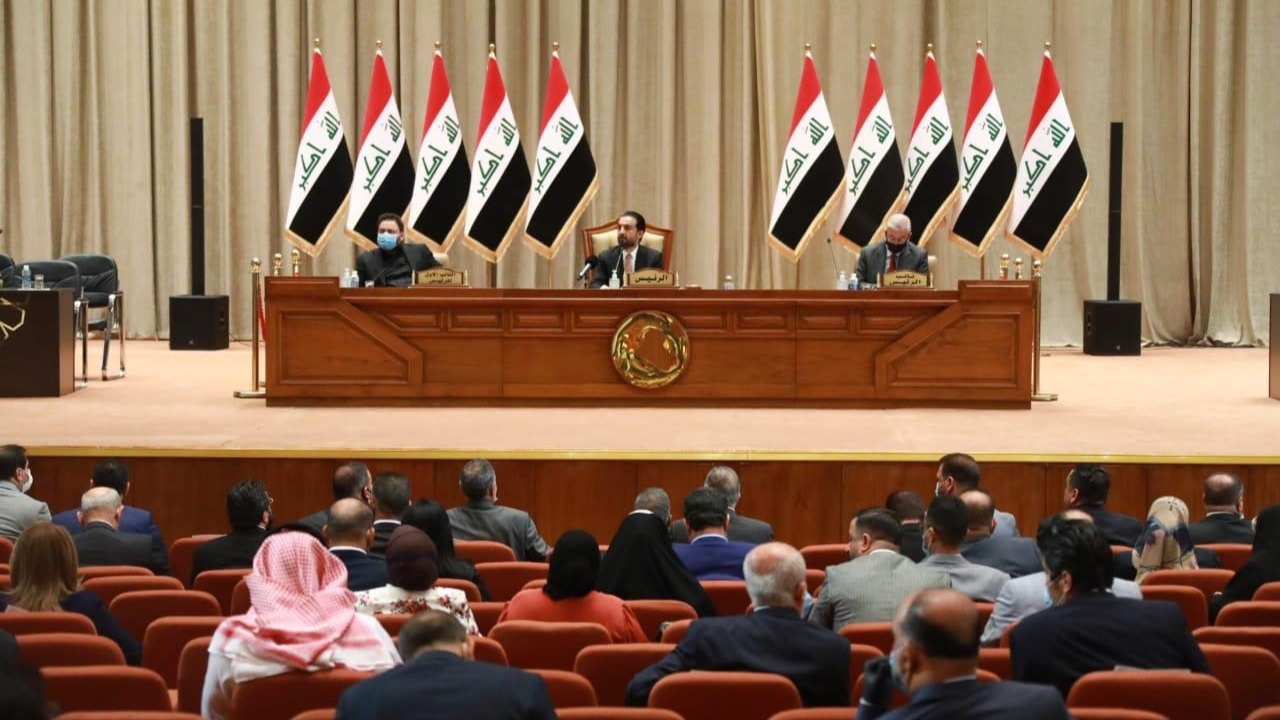Iraqi parliament approves remaining ministers in PM’s cabinet
“This is vital in implementing our program and delivering on our commitments to our people - who are waiting for actions, not words.”

ERBIL (Kurdistan 24) – The Iraqi parliament on Saturday approved the remaining members of Prime Minister Mustafa al-Kadhimi’s cabinet, nearly a month after he was voted in as the country’s new head of government.
“My cabinet is now complete with today’s vote,” Kadhimi said in a social media post. “This is vital in implementing our program and delivering on our commitments to our people - who are waiting for actions, not words.”
“I thank parliament for renewing its confidence. We will move forward with optimism and fortitude.”
Related Article: Mustafa al-Kadhimi voted in as Iraq’s prime minister
During a parliamentary session in early May, the legislature gave its vote of confidence to Kadhimi as the new Iraqi premier and fifteen members of his cabinet. The assembly rejected five ministerial candidates and postponed the vote on two others amid ongoing political disputes over the proposed appointments.
On Thursday, 2nd Deputy Parliamentary Speaker Bashir Haddad revealed to Kurdistan 24 the names of the prime minister’s nominees for the ministerial posts yet to be filled.
Ministerial candidates approved:
- Justice Minister: Salar Abdul Sattar Muhammad Hussein
- Trade Minister: Alaa Ahmed Hassan Obaid
- Culture, Tourism and Antiquities Minister: Hassan Nadhim Abdul Hammadi
- Migration and Displacement: Ivan Faeq Yaqoub Jabro
- Agriculture Minister: Muhammad Karim Jasim Salih
- Oil Minister: Ihsan Ismael (who is reportedly the former director-general of the state-owned Basra Oil Company)
- Foreign Affairs Minister: Fuad Hussein (A Kurdish official who served as finance minister in the previous cabinet)
The appointment of Ismael as oil minister comes two months after global oil prices plummeted to historic lows due to plunging demand as the coronavirus pandemic put the world on lockdown and supply dwarfed demand as Russia and Saudi Arabia tussled for the remaining market share.
The challenges Ismael would face as he takes on his role are among many that the new prime minister’s government would have to work to address. Kadhimi picked Ismael amid demands for him to take the post by representatives from Basra province, where the vast majority of Iraq's oil is extracted. Local Basrawis, however, reportedly protested Ismael's appointment.
The new premier, who has served for years as the country’s intelligence chief, is the third man nominated to lead the nation after Adnan al-Zurfi and Mohammed Allawi failed to get the parliamentary support they needed.
Kadhimi replaced Adil Abdul Mahdi, under whom members of the security forces and Iran-aligned Shia militias have allegedly killed over six hundred anti-government protesters since late 2019. Widespread demonstrations began in October and have continued sporadically since the coronavirus pandemic began in March.
Related Article: UN, US, UK condemn killings of Iraqi protesters by Sadr supporters
The ongoing protest movement that continues to demand systematic change in the national political system, the coronavirus pandemic that is crippling governments worldwide, potential economic repercussions of falling oil prices, an uptick in attacks by remnants of the Islamic State, and Erbil-Baghdad disputes are among a list of formidable challenges that Kadhimi must now face.
Editing by John J. Catherine